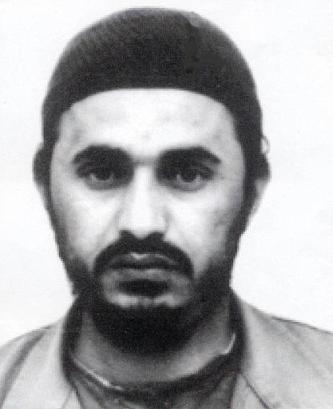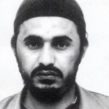Al-Qaeda in Iraq: Has al-Zawahiri Reined in al-Zarqawi?
Publication: Terrorism Focus Volume: 3 Issue: 14

Media reports during the past week have announced that Abu Musab al-Zarqawi—al-Qaeda’s chief in Iraq—has been “replaced” or “demoted” from the leadership of Iraq’s Sunni resistance coalition (Daily Star, April 3; al-Bawaba, April 2). The stories have said that al-Zarqawi was removed as “the result of several mistakes he made,” including for taking “the liberty of speaking in the name of the Iraqi people” and for “targeting the Islamic states neighboring Iraq, particularly Jordan” [1]. On April 2, Jordan-based Sunni cleric Sheikh Hudhayfah Azzam—the son of the famous cleric, mujahideen leader, and Osama bin Laden-mentor Abdullah Azzam—told the journal al-Bawaba that “al-Zarqawi bowed to the orders two weeks ago [March 15-18] and was replaced by Iraqi national Abdullah bin Rashed al-Baghdadi.” Azzam said that al-Zarqawi’s “role has been limited to military action,” but stressed that al-Zarqawi approved the change in his status and “has returned to where he should be as a man who came to champion the Iraqi cause” (al-Bawaba, April 2; al-Arabiyah, April 2).
Only time will tell whether al-Zarqawi was demoted and what role he will play in the Iraq insurgency. This event, however, provides the occasion for reviewing the status of al-Zarqawi’s relationship with Osama bin Laden’s al-Qaeda on the basis of measurable or at least observable factors. To put the question simply, “What sort of command-and-control does bin Laden exercise over al-Zarqawi?” This question is important not only in terms of the Iraq war, but also in the context of what is coming to be the West’s common wisdom that bin Laden and Ayman al-Zawahiri are cut off from their subordinates and fighters and cannot communicate with or command them.
While insurgencies are notorious for not yielding quantifiable measures, in al-Zarqawi’s case we have a solid framework on which to offer an assessment. That framework is provided by the letter that al-Qaeda deputy leader al-Zawahiri wrote to al-Zarqawi on July 9, 2005, which was captured by U.S. entities and published by the U.S. Director of National Intelligence on October 11, 2005 [2]. (NB: There has been some controversy over whether this letter is authentic or a forgery. I have held that the letter is authentic, and believe the following supports that judgment. This article, however, cannot and does not prove the letter’s authenticity.)
In his July 9 letter to al-Zarqawi, al-Zawahiri adopted the tone of a wise, old uncle to deliver a clear by relatively gentle upbraiding to al-Qaeda’s emir in Iraq. In the course of a 10-plus page letter, al-Zawahiri focused on four issues that he argued al-Zarqawi needed to address to improve prospects for himself, al-Qaeda and the Iraqi resistance.
First, al-Zawahiri explained that the mujahideen in Iraq must realize that their mission does not end “with the expulsion of the Americans from Iraq.” He warned that “things may develop faster than we imagine” and the Americans “will soon exit.” For this reason, the mujahideen must conduct political “fieldwork…alongside combat and war” so that all mujahideen groups “would be a nucleus around which would gather the tribes and their elders…and all the distinguished ones who were not sullied by the [U.S.] occupation and those who defended Islam.” If the mujahideen are not ready when the Americans leave, al-Zawahiri warned, “[w]e will return to having the secularists and traitors hold sway over us” [3].
Second, al-Qaeda’s deputy chief said that the video-taped beheading of prisoners was costing all of the Iraqi mujahideen public support. “Among the things which the feelings of the Muslim populace who love and support you will never find palatable,” al-Zawahiri said, “are the scenes of slaughtering hostages.” He said that these acts alienate Muslims, emphasized that “we do not need this,” and suggested “we can kill the captives by bullet” [4].
Third, al-Zawahiri asked al-Zarqawi to consider if “the assumption of leadership for the [Iraqi] mujahideen or a group of the mujahideen by non-Iraqis stirs up sensitivity for some people?” Telling al-Zarqawi to look into this issue, al-Zawahiri asked what impact such sensitivities had and how such sensitivities can be “eliminated while preserving the commitment of the jihadist work and without exposing it to any shocks?” [5].
Fourth, al-Zawahiri argued that indiscriminate attacks on Shiites and their sanctities were—like the beheadings—backfiring on the mujahideen. Al-Zawahiri said, yes, the Shiites are heretics, and Sunnis must settle accounts with them in the future. For now, however, “many of your Muslim admirers amongst the common folk are wondering about your attacks on the Shiites…and their mosques.” Not only do these attacks divert the insurgents from killing Americans, al-Zawahiri said, “but the majority of Muslims don’t comprehend [the need for killing Shiites] and possibly cannot even imagine it” [6].
Nine months after al-Zawahiri’s deft and non-confrontational letter laid down the law to al-Zarqawi, it is apparent that al-Qaeda’s chief in Iraq largely has obeyed his master’s voice. Since July 2005, al-Zarqawi has associated his organization with at least six other groups—Jaish al-Taifa al-Mansourah (Victorious Sect Army), Saraye Ansar al-Tawhid (Ansar al-Tawhid Platoons), Saraya al-Jihad al-Islami (Islamic Jihad Platoons), Saraya al-Ghoraba (the Strangers Platoons), Kitaeb al-Ahwal (the Calamities Brigades) and Jaish Ahlul Sunna wa al-Jamma (Army of Ahlul Sunna wa al Jamma)—to form a Sunni “Mujahideen Shura Council (MSC) in Iraq.” This council is trying to coordinate the military, political, and media activities of the insurgents. Al-Zarqawi appears to be cooperating with the council. He has not been reported to be a disruptive influence in its deliberations, and his media apparatus increasingly appears to be working through that of the council. These developments all suggest that he took al-Zawahiri’s message to heart.
This week’s reports that al-Zarqawi has been “demoted” likewise squares perfectly with the intimations al-Zawahiri sent him that there may be debilitating “sensitivities” over a non-Iraqi’s leadership of the Iraqi resistance. Without even a whimper, al-Zarqawi allowed himself to be publicly rebuked—”he made many political mistakes”—moved to a lesser post, and was chastised for “speaking in the name of the Iraqi resistance and people.” The manner in which al-Zarqawi’s change in status was handled left the clear impression—as al-Zawahiri said would be desirable—that the resistance movement is an Iraqi insurgency, headed by Iraqis, and conducted in Iraqi interests. Foreign mujahideen are welcomed to support the Iraqi insurgents, but al-Zarqawi, by “bowing” to Iraqi wishes, publicly proved that they are playing a subordinate role.
Al-Zawahiri’s lay-off-the-Shiites message also seems to have struck home with both al-Zarqawi and his Iraqi Sunni associates. There have been no al-Zarqawi-sponsored televised beheadings in recent months, for example, and there was very little anti-Shiite violence during the December 2005 parliamentary elections. In addition, the last year has seen a greater focus on killing Shiites associated with the new Iraqi government or working with the U.S.-led coalition, rather than on killing Shiites just because they are Shiites. The killing of “collaborators” is, of course, permissible under the fatwas that were issued by Shiite and Sunni scholars after the 2003 U.S. invasion.
Although less clear, there seems to be fewer attacks on Shiite mosques by al-Zarqawi and his MSC colleagues. While the U.S., its allies, and Iraqi Shiite leaders automatically attribute each new attack on a Shiite mosque—like the one in Samarra—to al-Zarqawi, they have produced no proof of his or the MSC’s culpability. In addition, al-Zarqawi and his allies have denied their responsibility after each blast. It may yet be proven that al-Zarqawi, et. al. are responsible for the mosque attacks, but right now that contention is nothing more than analysis by assertion. Indeed, it is hard to see what interests of al-Qaeda and Iraq’s Sunni resistance would be served by promoting an Iraqi civil war; they would be overwhelmed and perhaps annihilated by Iraq’s huge Shiite population.
While it is too soon to know how al-Zarqawi’s new status “as a soldier of the resistance” will impact the Iraq insurgency, a strong argument can be made that Osama bin Laden and Ayman al-Zawahiri have reached out and persuaded al-Zarqawi to change his behavior in a way that will benefit al-Qaeda (al-Quds al-Arabi, April 4). Historically, al-Qaeda has been welcomed in Islamic insurgencies around the world precisely because it wanted to contribute force multipliers—military cadre, media and financial expertise, materiel, logistics assistance—and did not try to supplant local leadership. Based on the foregoing, al-Zarqawi now seems ready to play this traditional al-Qaeda role, which is likely to bring greater unity to Iraq’s Sunni resistance. The foregoing also ought to give pause to those Western analysts who have concluded that bin laden and al-Qaeda are largely yesterday’s news, an isolated, cowering organization unable to influence—let alone direct—the affairs of the many fronts of the worldwide anti-U.S. Islamic insurgency.
Notes:
1. Daily Star (Lebanon), April 3; Daily Times (Pakistan), April 3; al-Bawaba (Jordan), April 2. Also, see “Panorama,” al-Arabiyah Television, April 2. It will be interesting to see how al-Zarqawi reacts to his chastisement for staging attacks from Iraq against contiguous Muslim states and Israel. These attacks were called for by al-Zawahiri in his July 9, 2005 statement, and al-Zarqawi responded with attacks on Israel and Jordan. The phrasing used in the “demotion” of al-Zarqawi clearly puts Jordan off limits to further attacks, but just as clearly Iraq’s Sunnis have no objections to additional al-Zarqawi attacks on Israel. We also may be seeing the effectiveness of the Iraq insurgents’ ban in recent media reports that al-Zarqawi is preparing attacks in Africa, Europe, and even the United States.
2. “Letter from al-Zawahiri to al-Zarqawi, July 9, 2005,” Office of the Director of National Intelligence, October 11, 2005.
3. Ibid.
4. Ibid.
5. Ibid.
6. Ibid.




